APBIO Quiz 1
1/16
There's no tags or description
Looks like no tags are added yet.
Name | Mastery | Learn | Test | Matching | Spaced | Call with Kai |
|---|
No analytics yet
Send a link to your students to track their progress
17 Terms
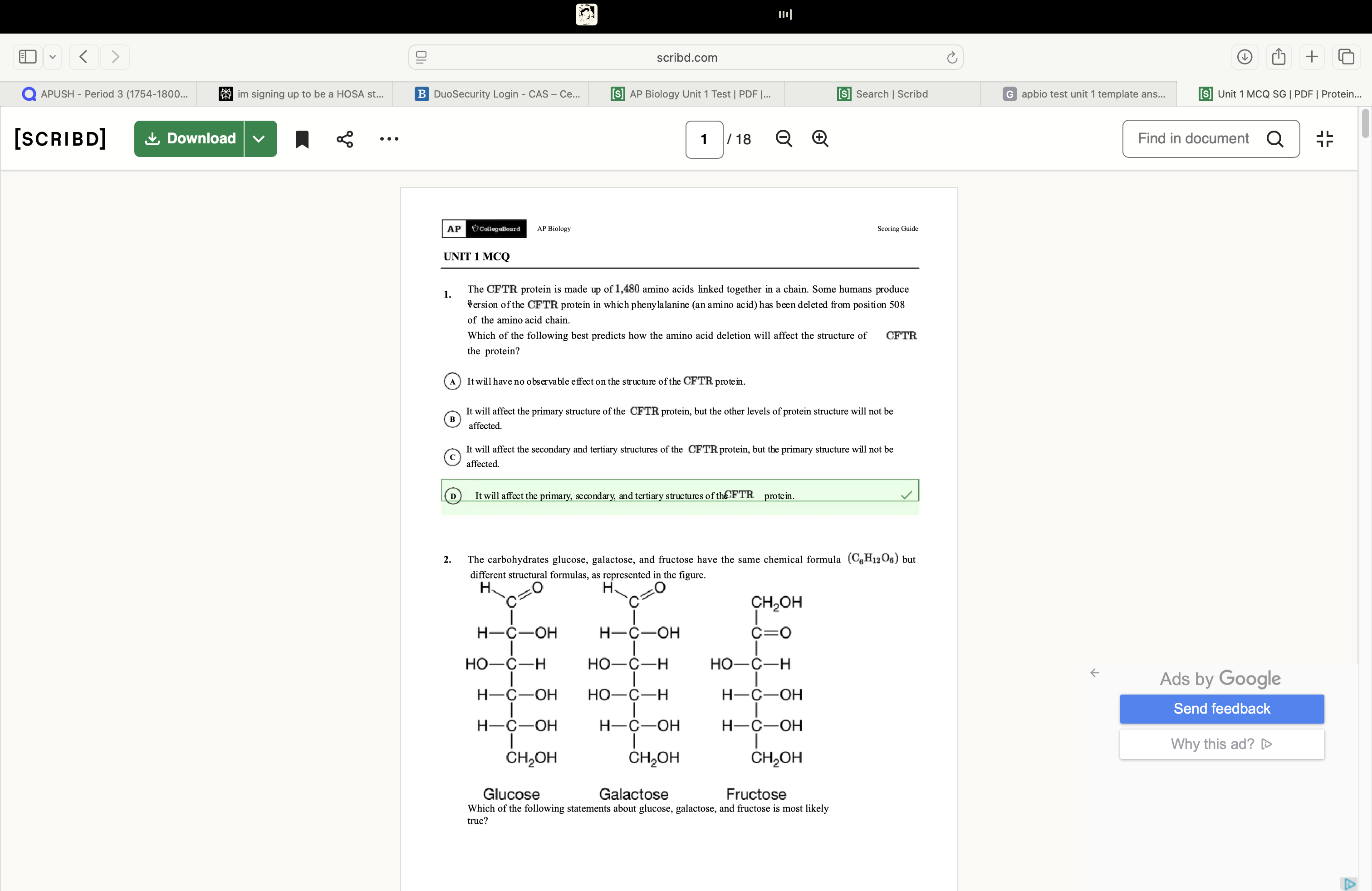
Which of the following best predicts how the amino acid deletion will affect the structure of CFTR protein
D
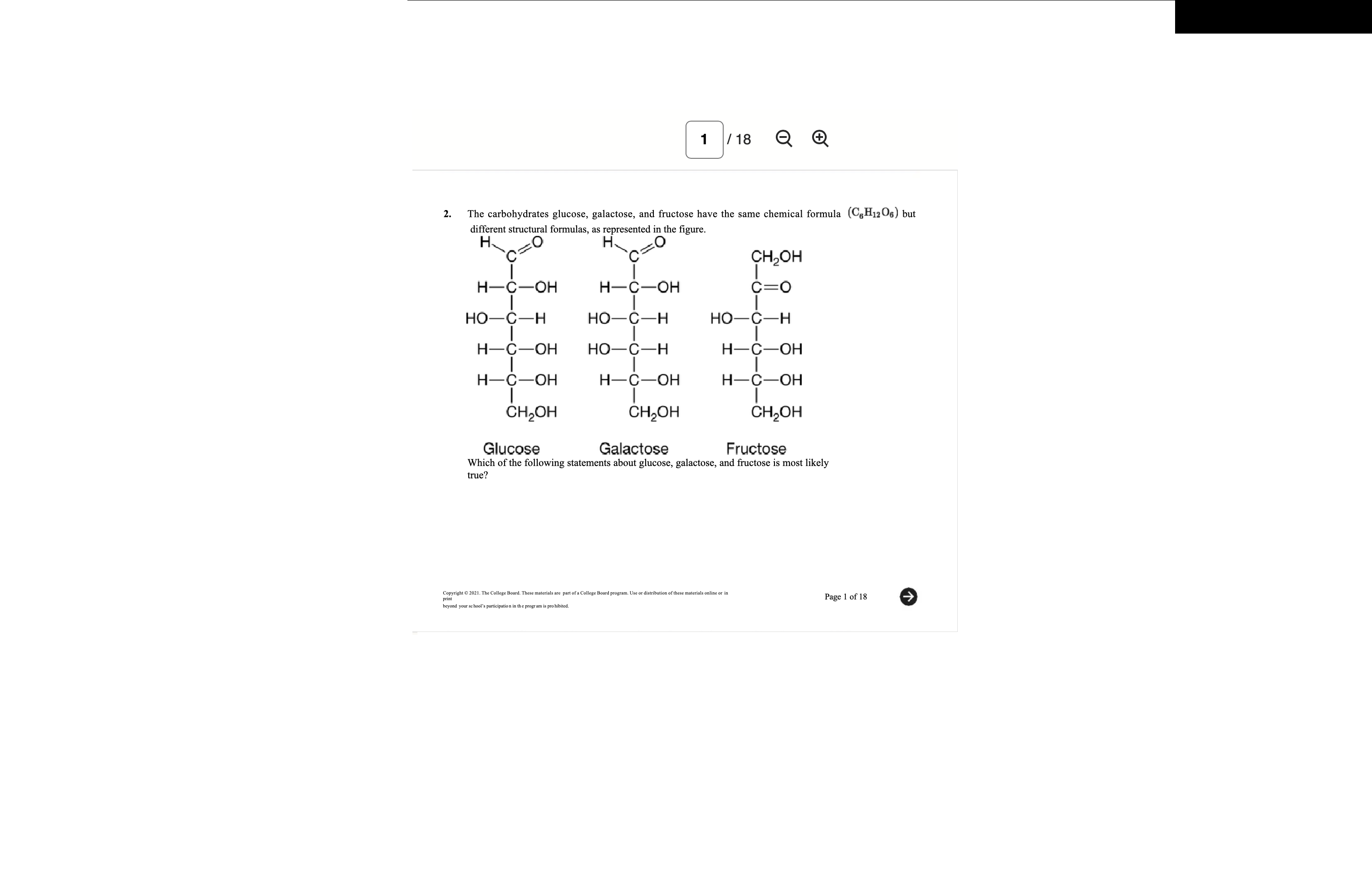
The carbohydrates, glucose, fructose, and galactose, have the same chemical formula (C6H12O6) but different structural formulas as represented in the figure
C

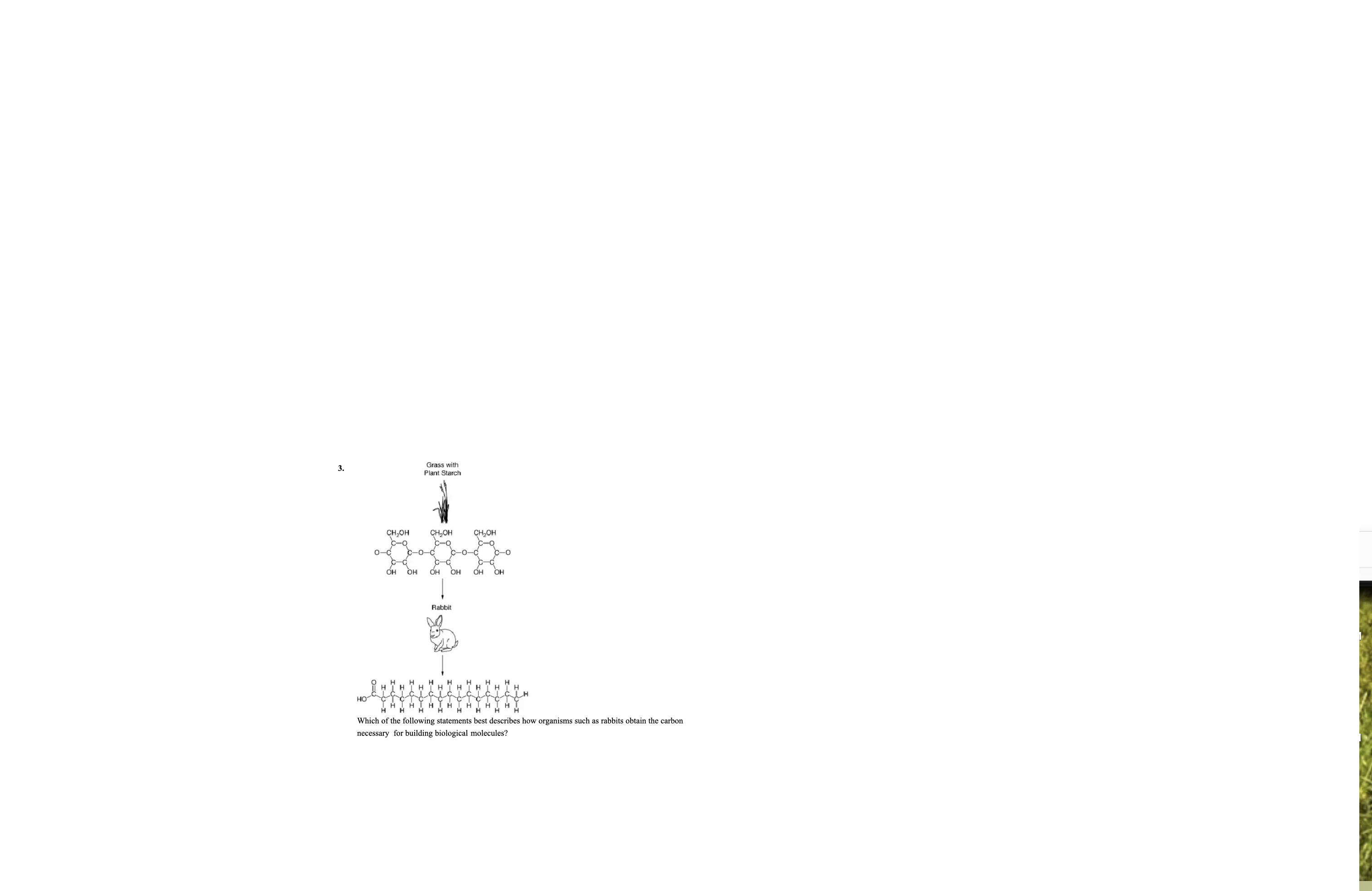
Which of the following states best describes how animals such as rabits obtain the carbon necessary for building biological molecules
B
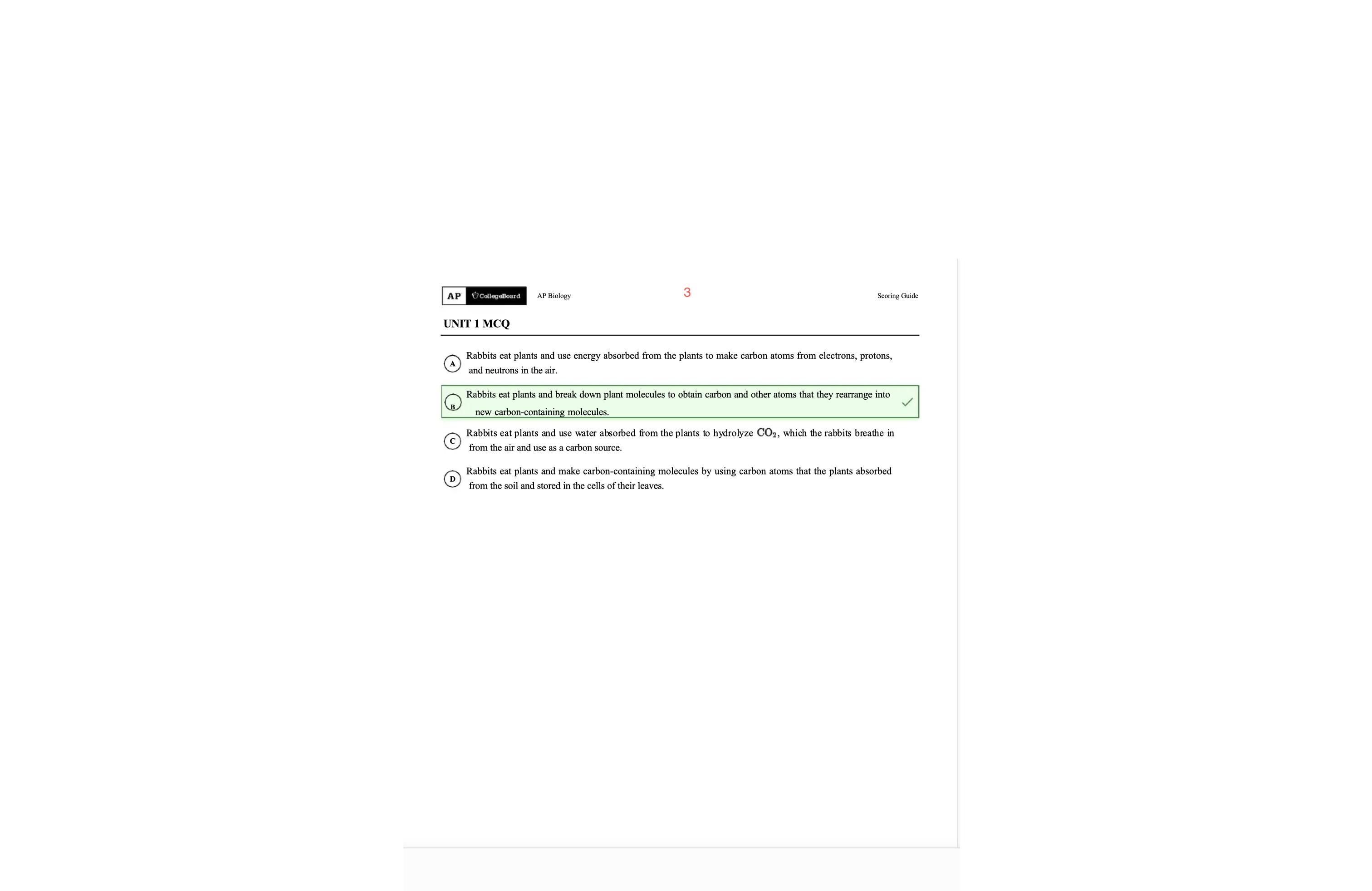
Which of the following best describes how amino acids determines the tertiary structure of the protein
B
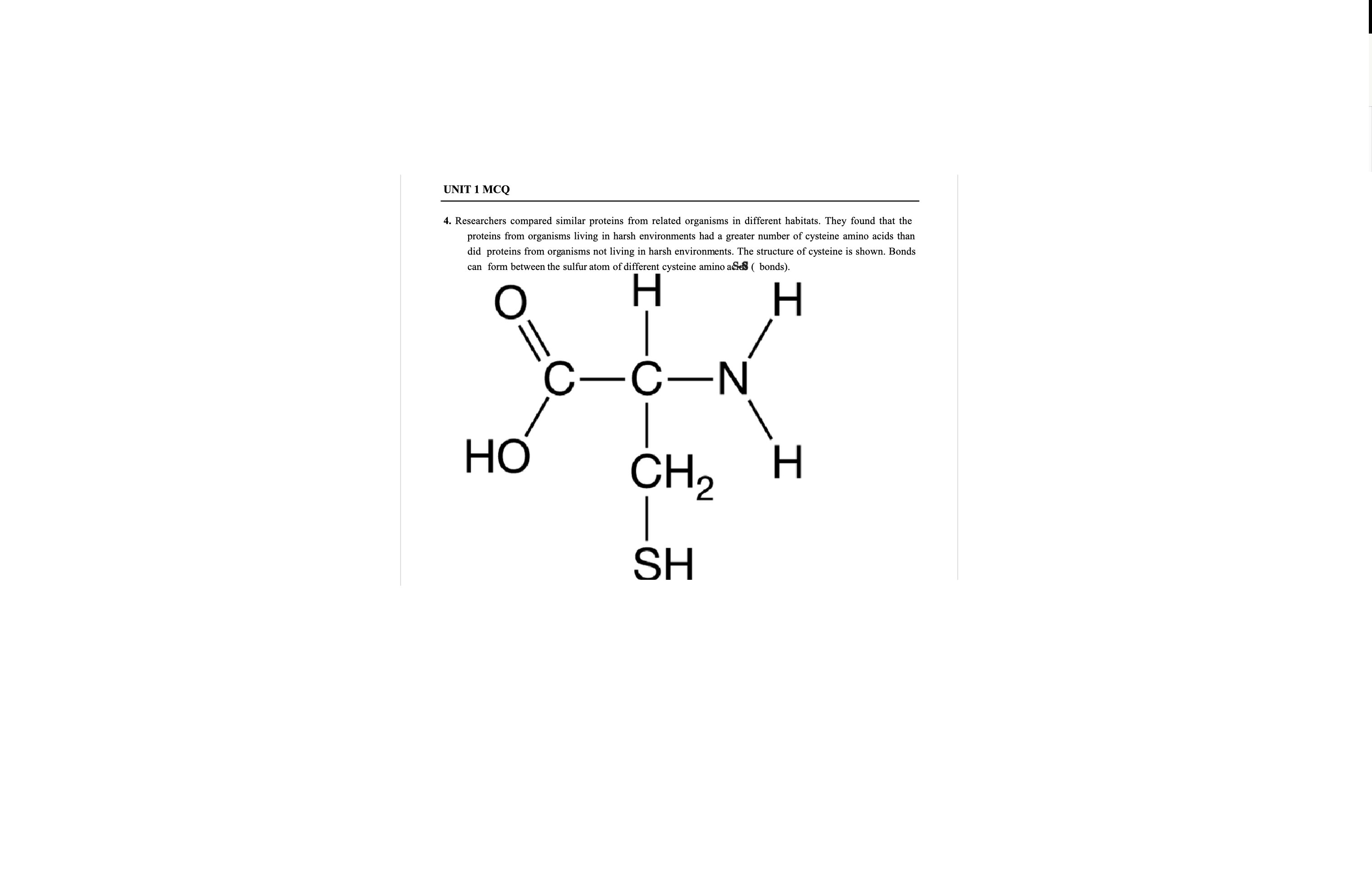
Researchers compared similar proteins from related organisms in different habitats. They found that the proteins from organisms living in harsh environments had a greater number of cysteine amino acids than did proteins from organisms not living in harsh environments. The structure of cysteine is shown. Bonds can form between the sulfur atom of different cysteine amino adies ( bonds).
B

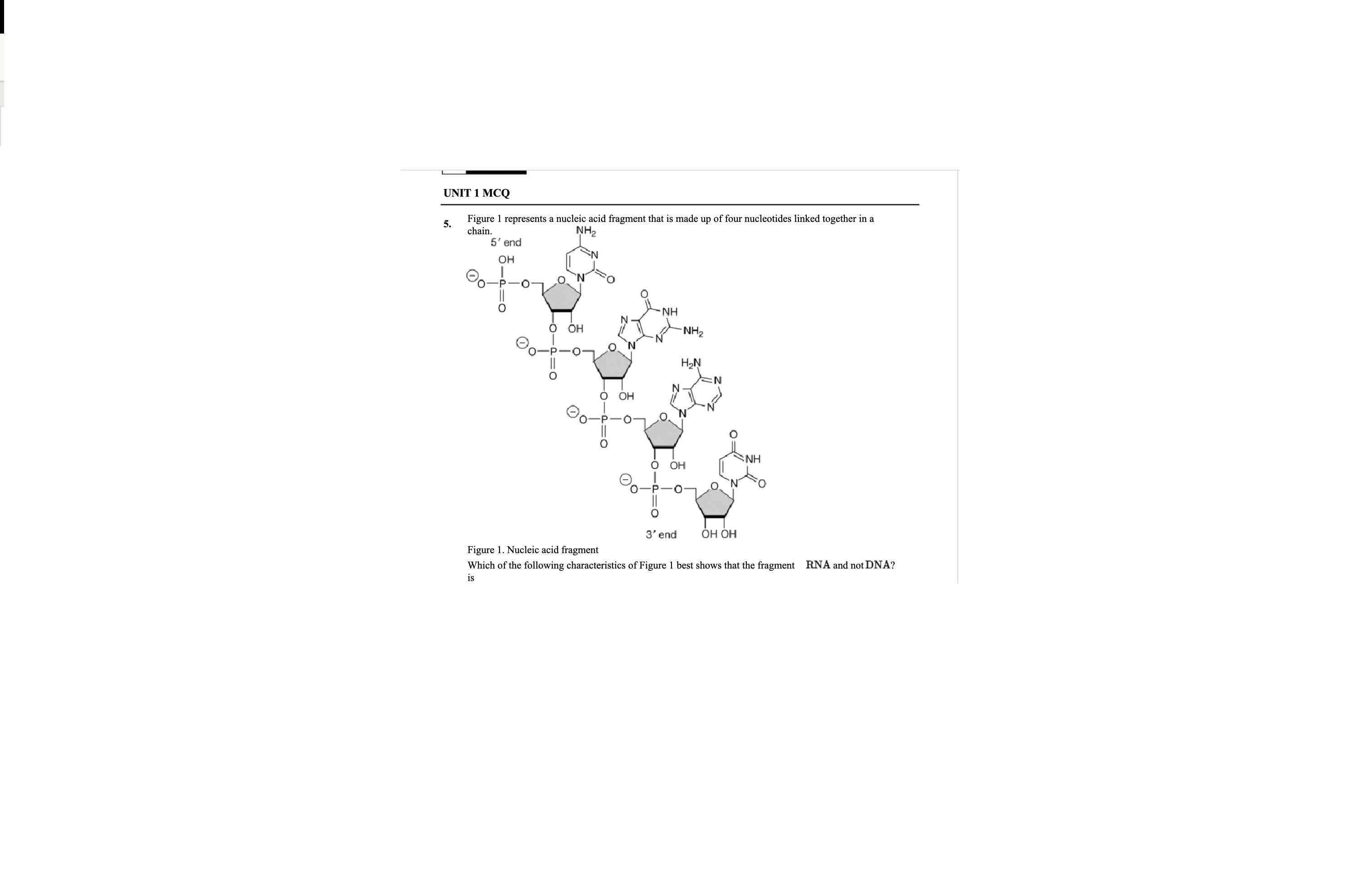
Figurine 1 represents a nucleic acid fragment that is made up of four nucleotides linked together in a chain
B

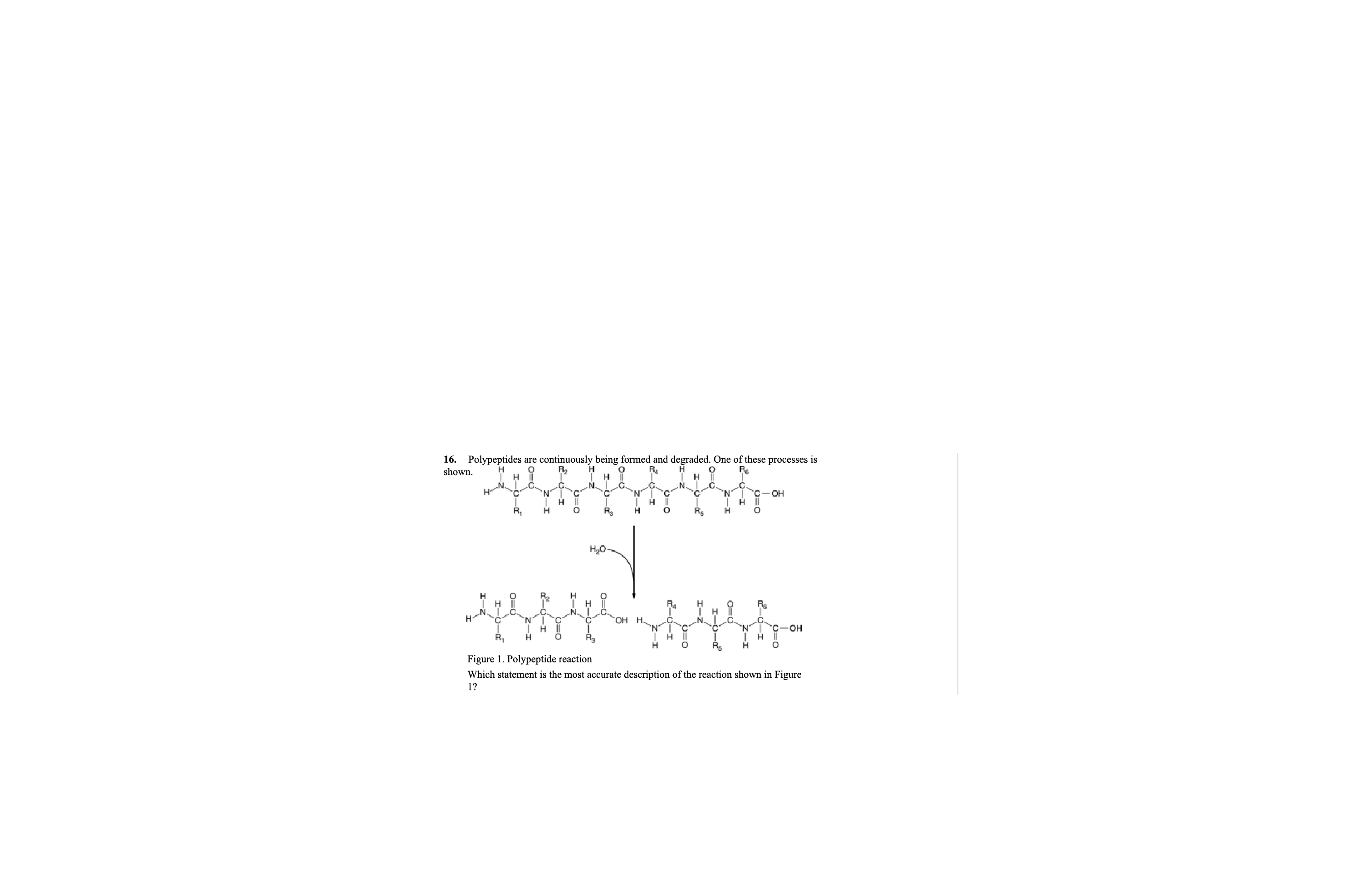
Which statement is the most accurate description of the reaction shown in figure 1
D

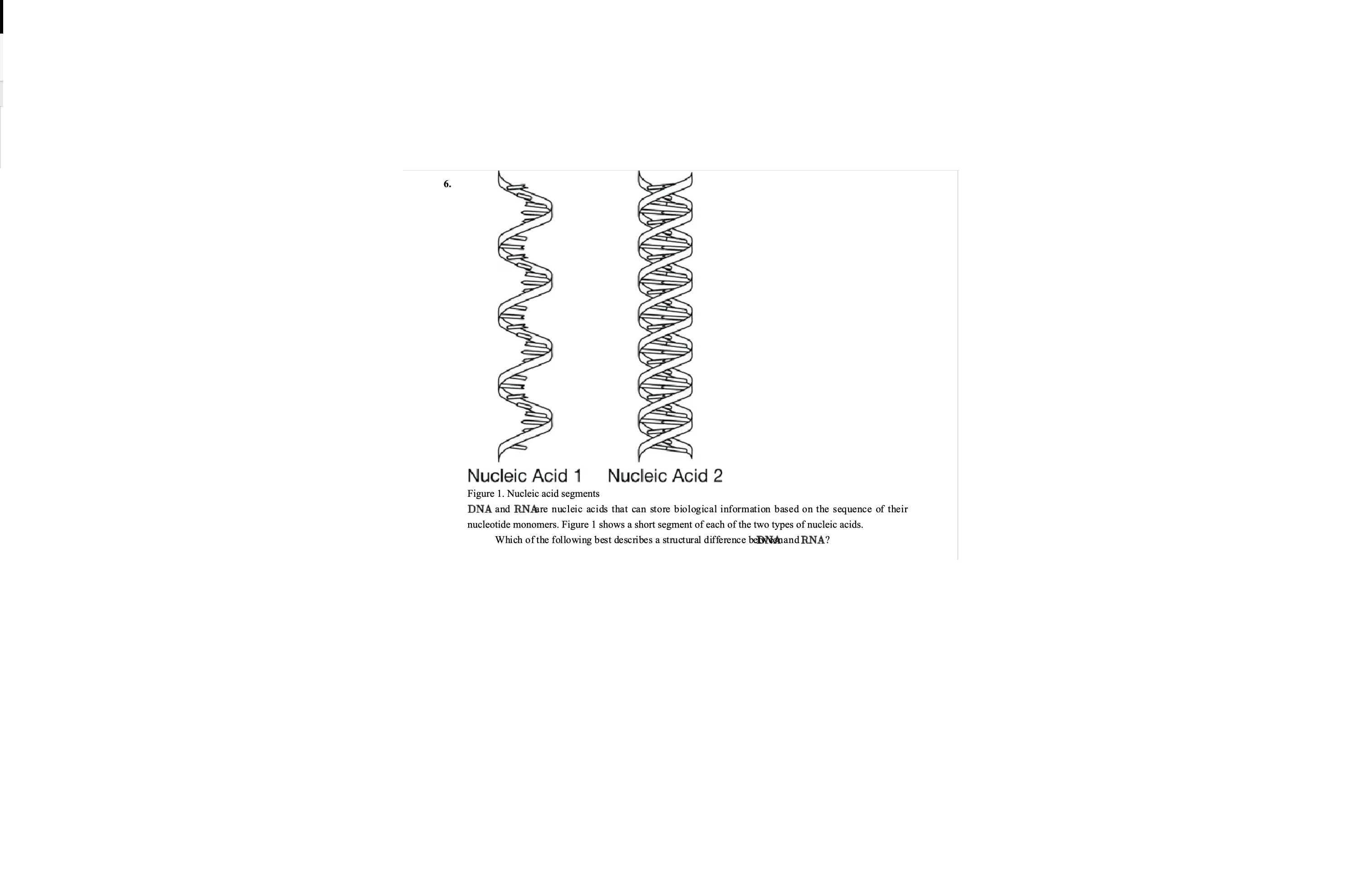
DNA and RNAare nucleic acids that can store biological information based on the sequence of their nucleotide monomers. Figure 1 shows a short segment of each of the two types of nucleic acids.
Which of the following best describes a structural difference DNA and RNA?
B

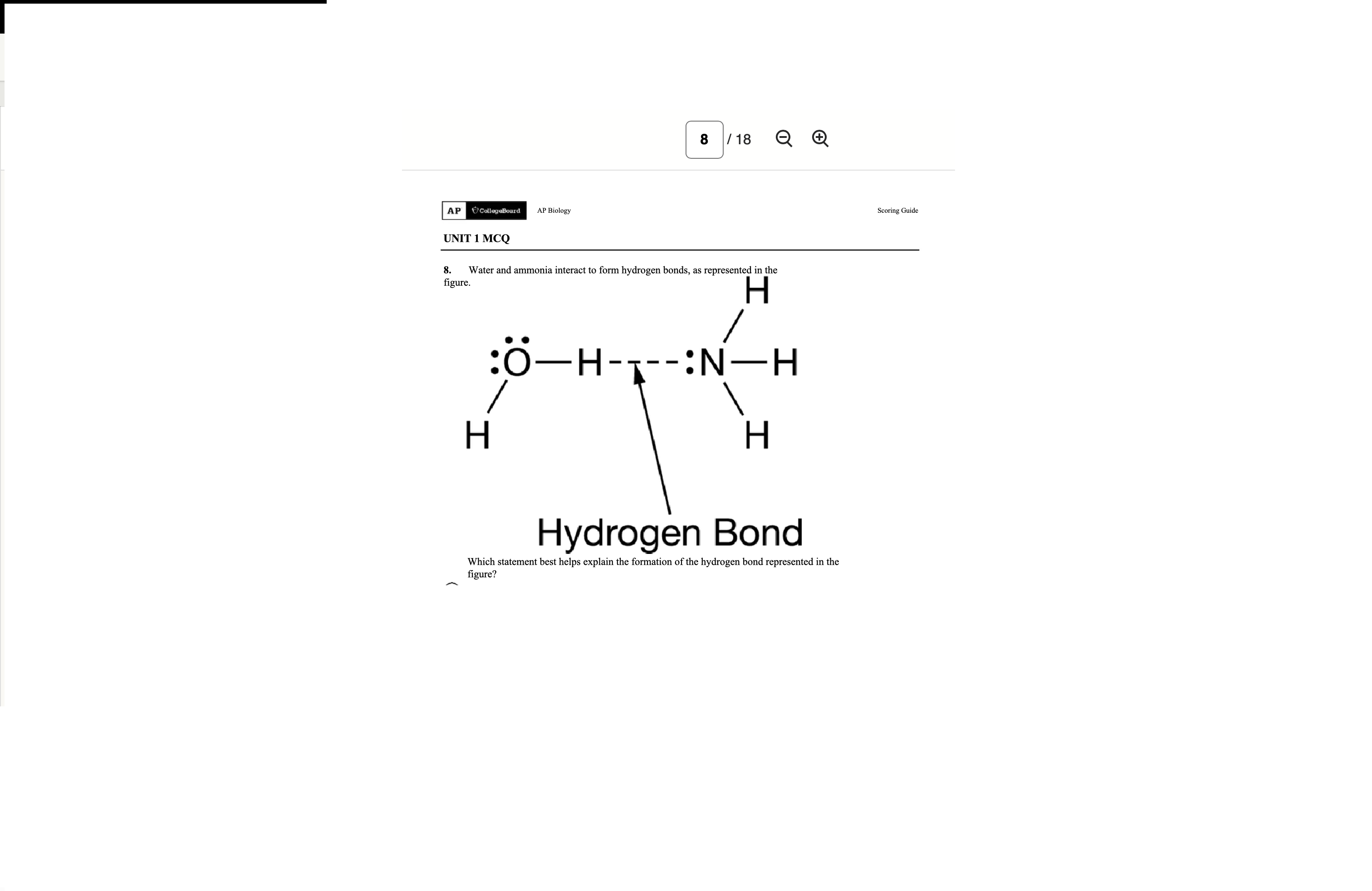
Which statement best helps explain the formation of the hydrogen bond in figure 1
B
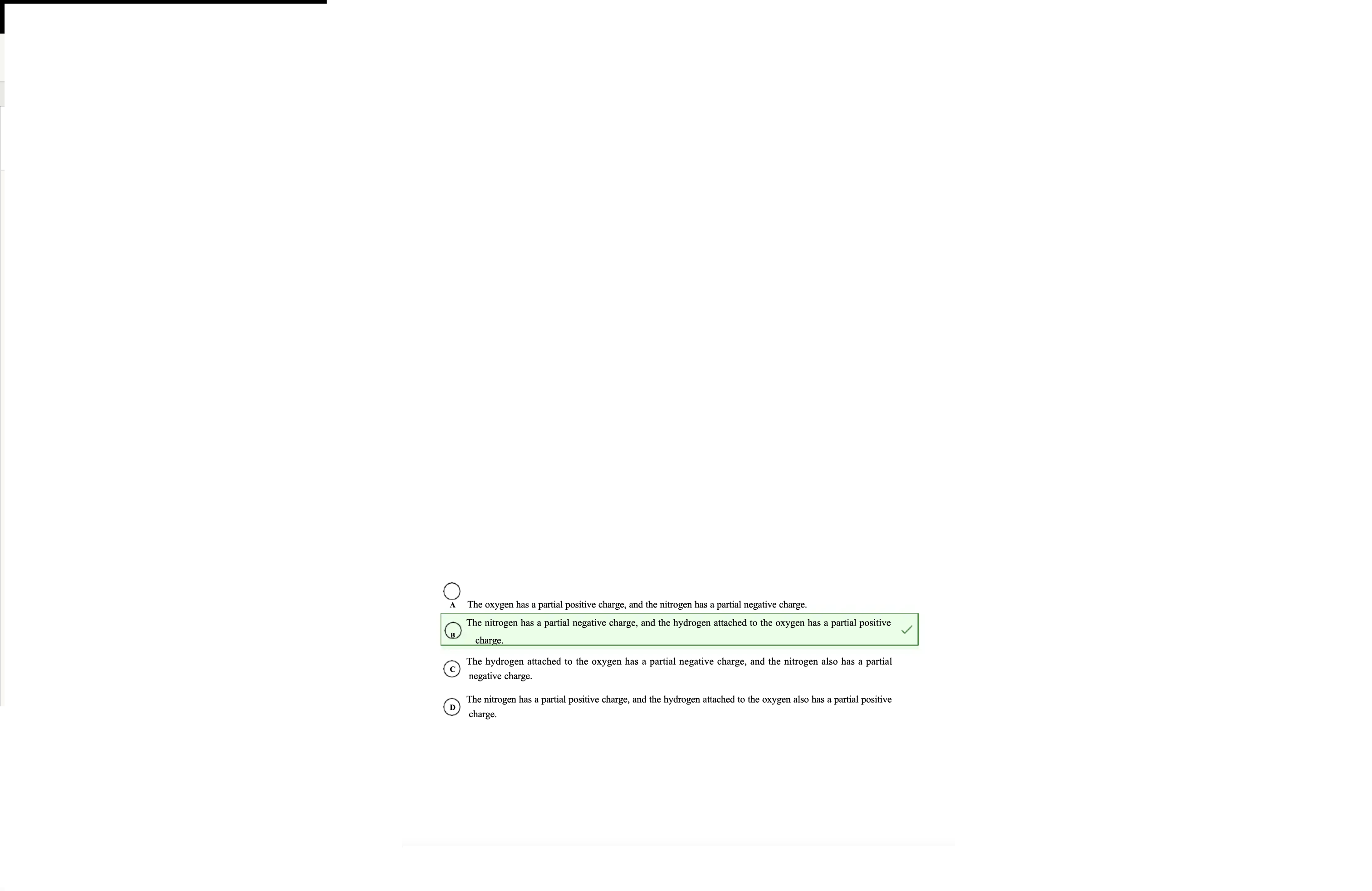
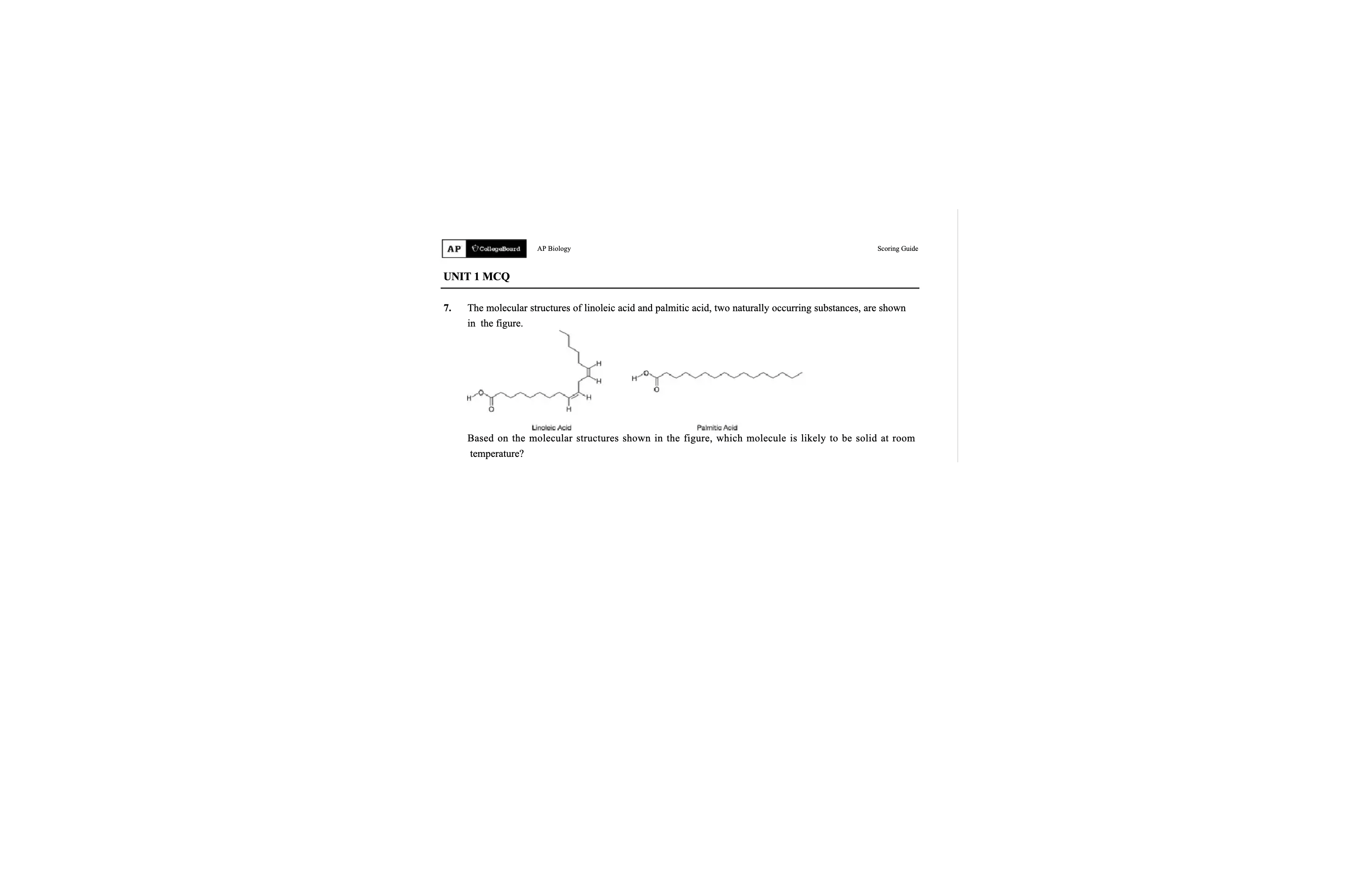
Which molecule is most likely to be solid at room temperature
C

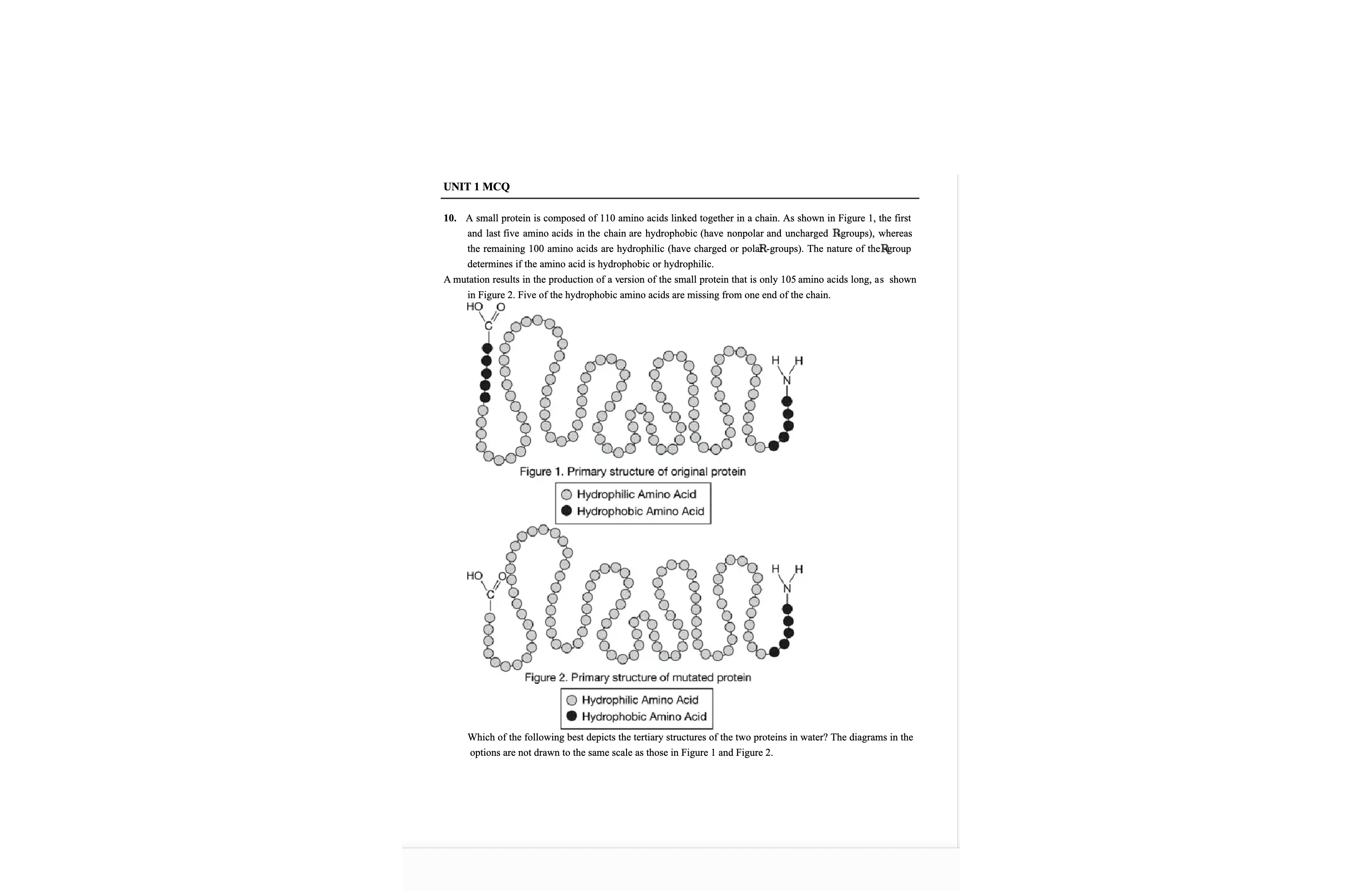
Which of the following best depicts the tertiary structures of the two proteins in water? The diagrams in the options are not drawn to the same scale as those in Figure 1 and Figure 2.
A
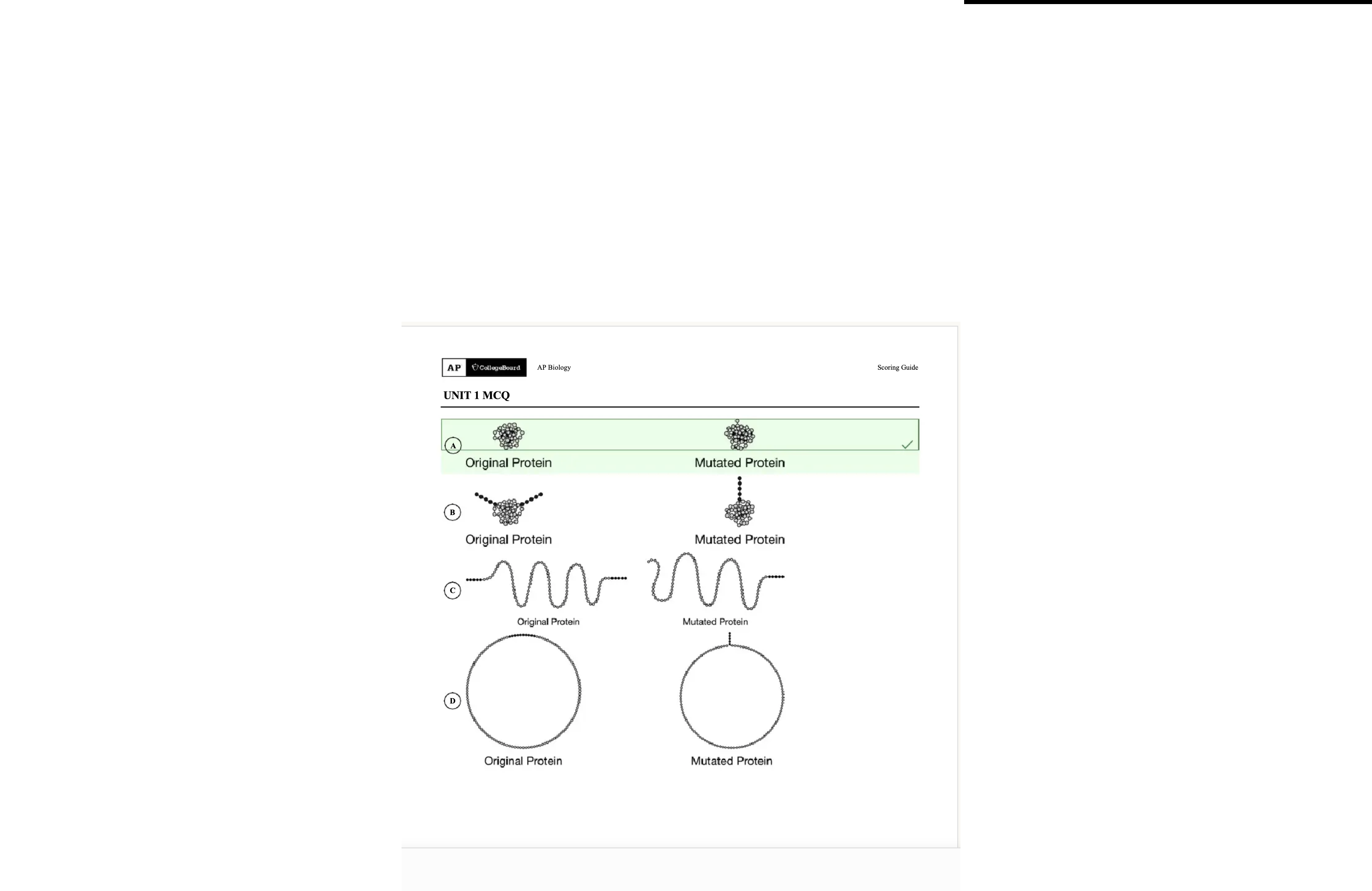
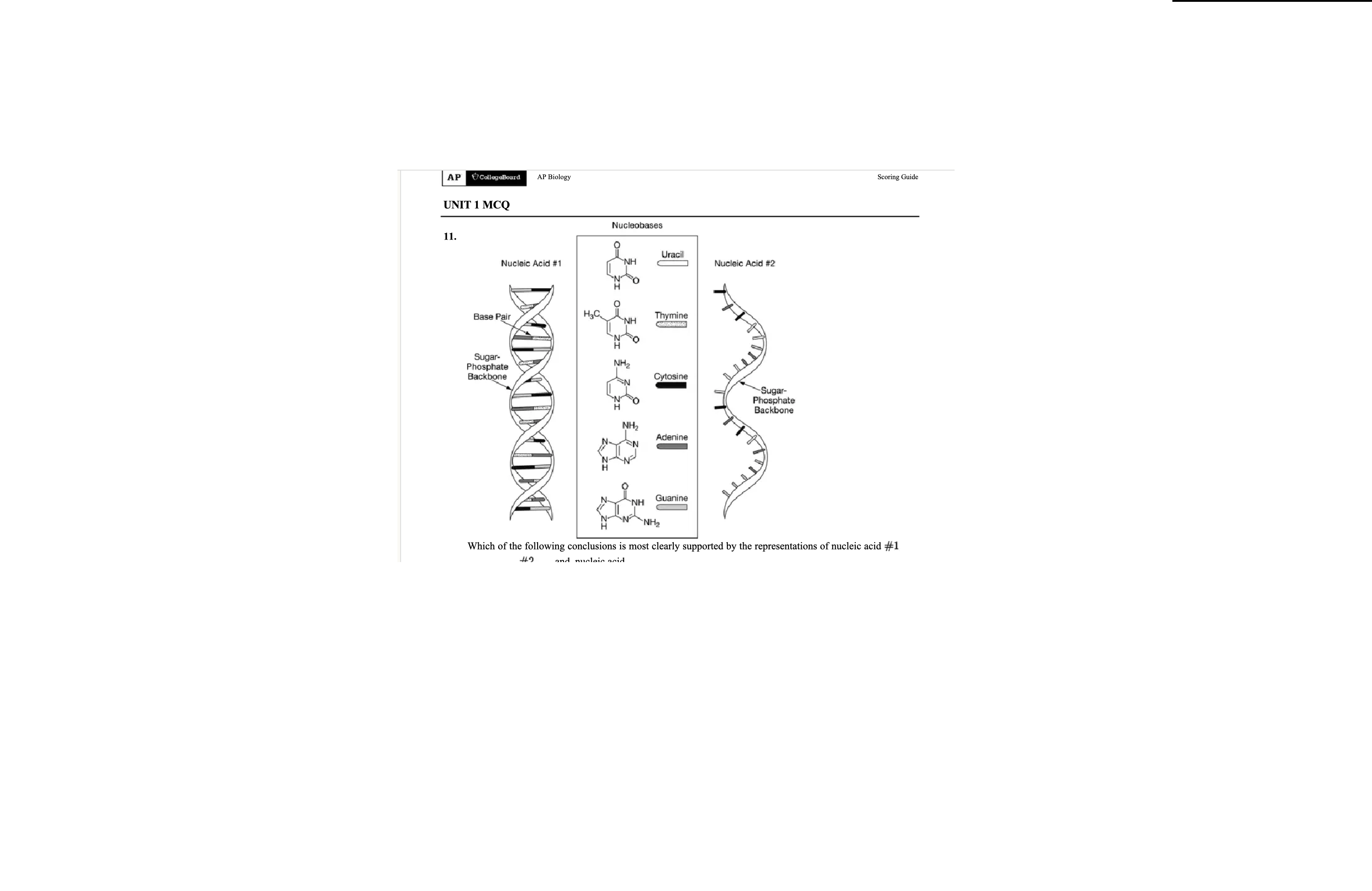
Which of the following conclusions is most clearly supported by the representation of nucleic acids
D

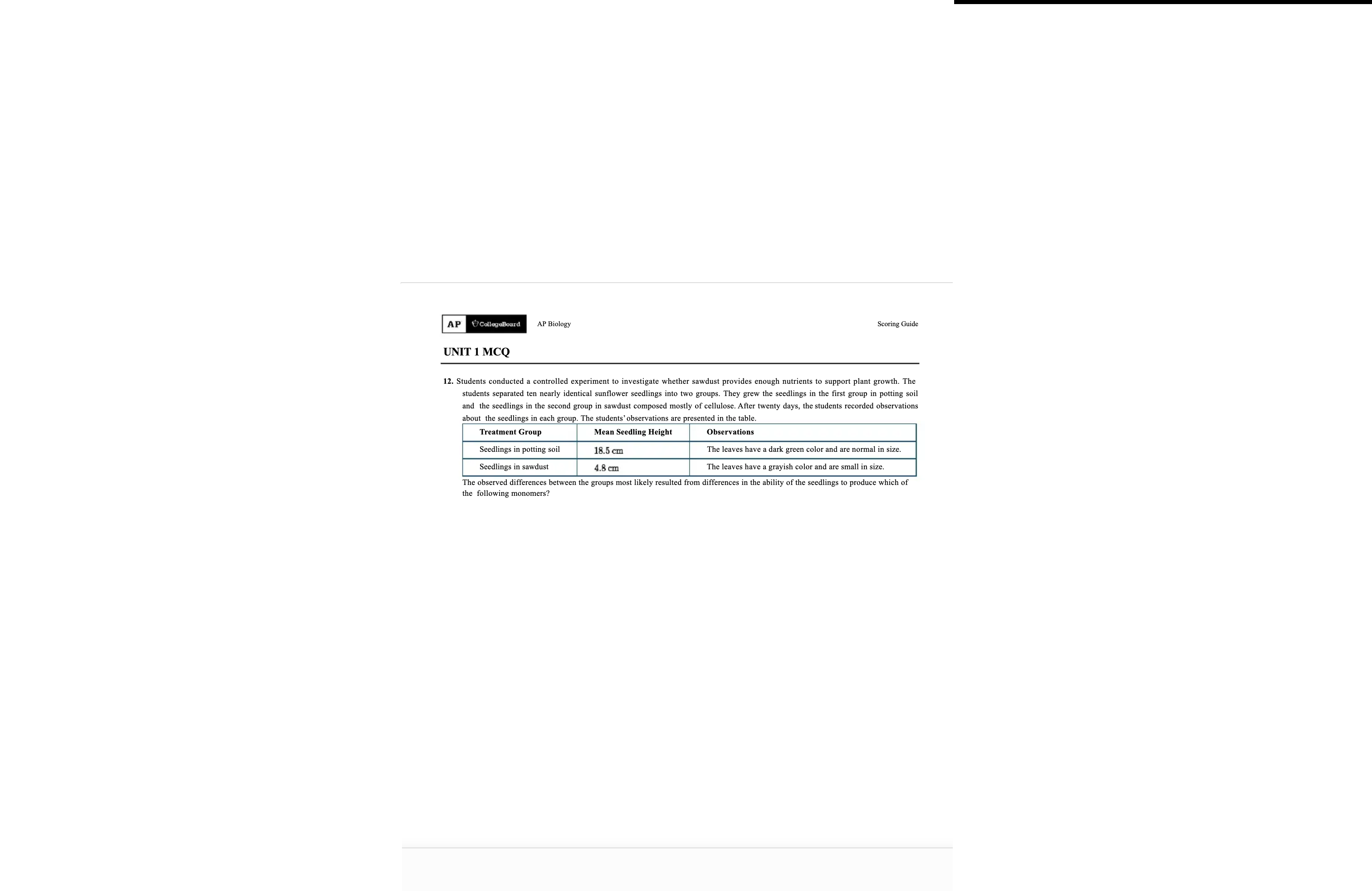
The observed differences between the groups most likely resulted from differences in the ability of the seedlings to produce which of the following monomers?
C
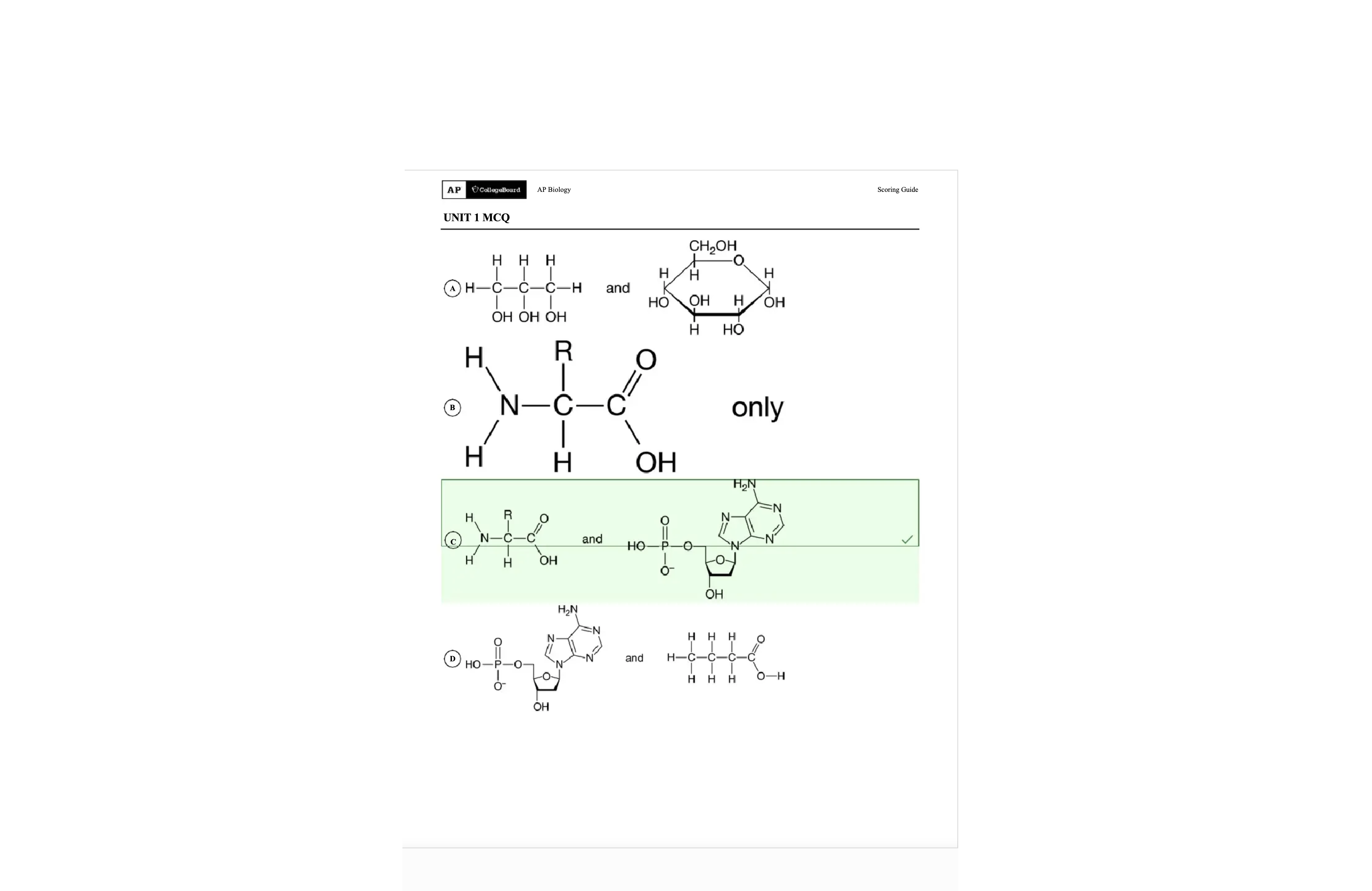
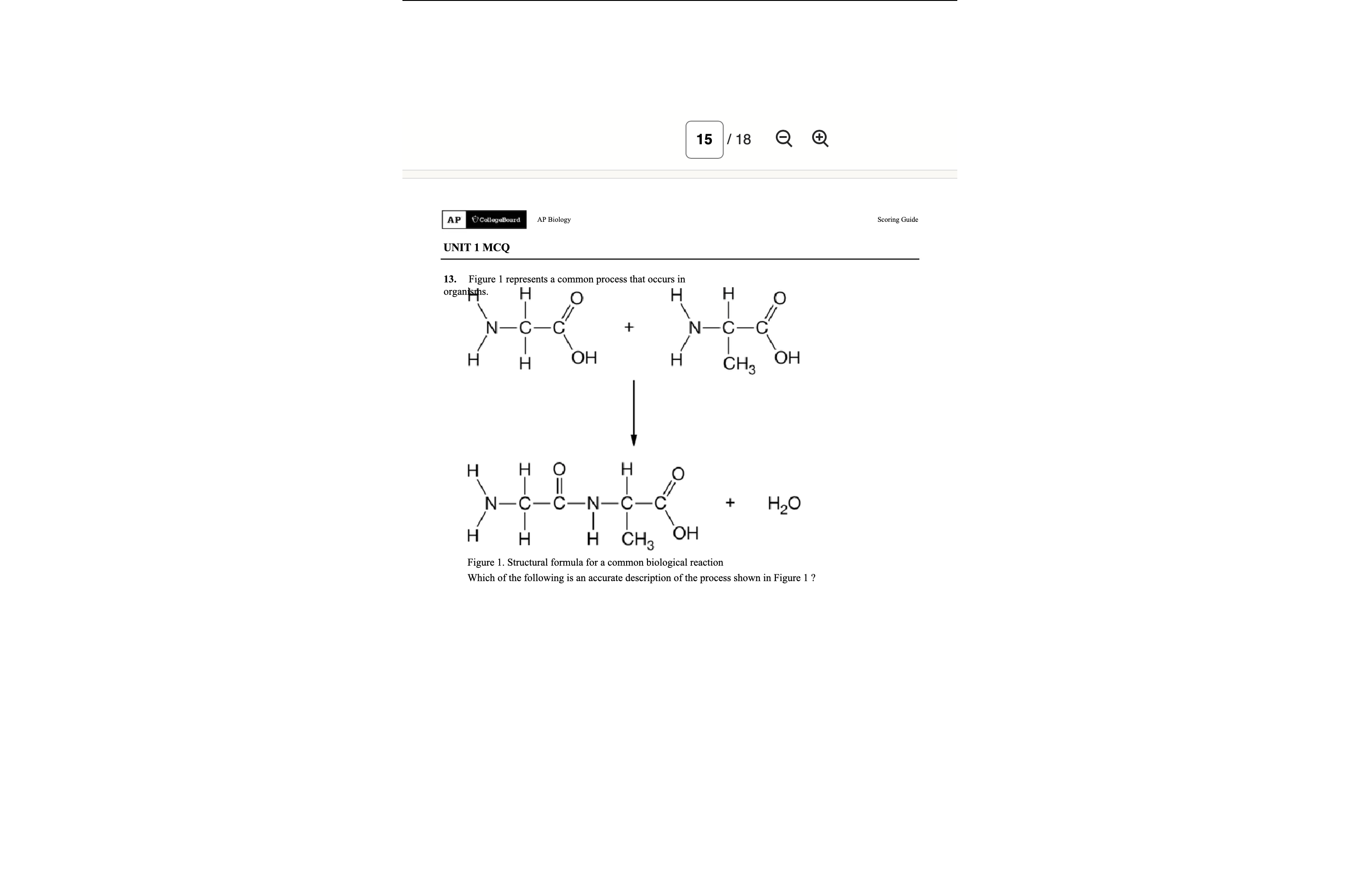
Which of the following is an accurate description of the process shown in fig. 1
D

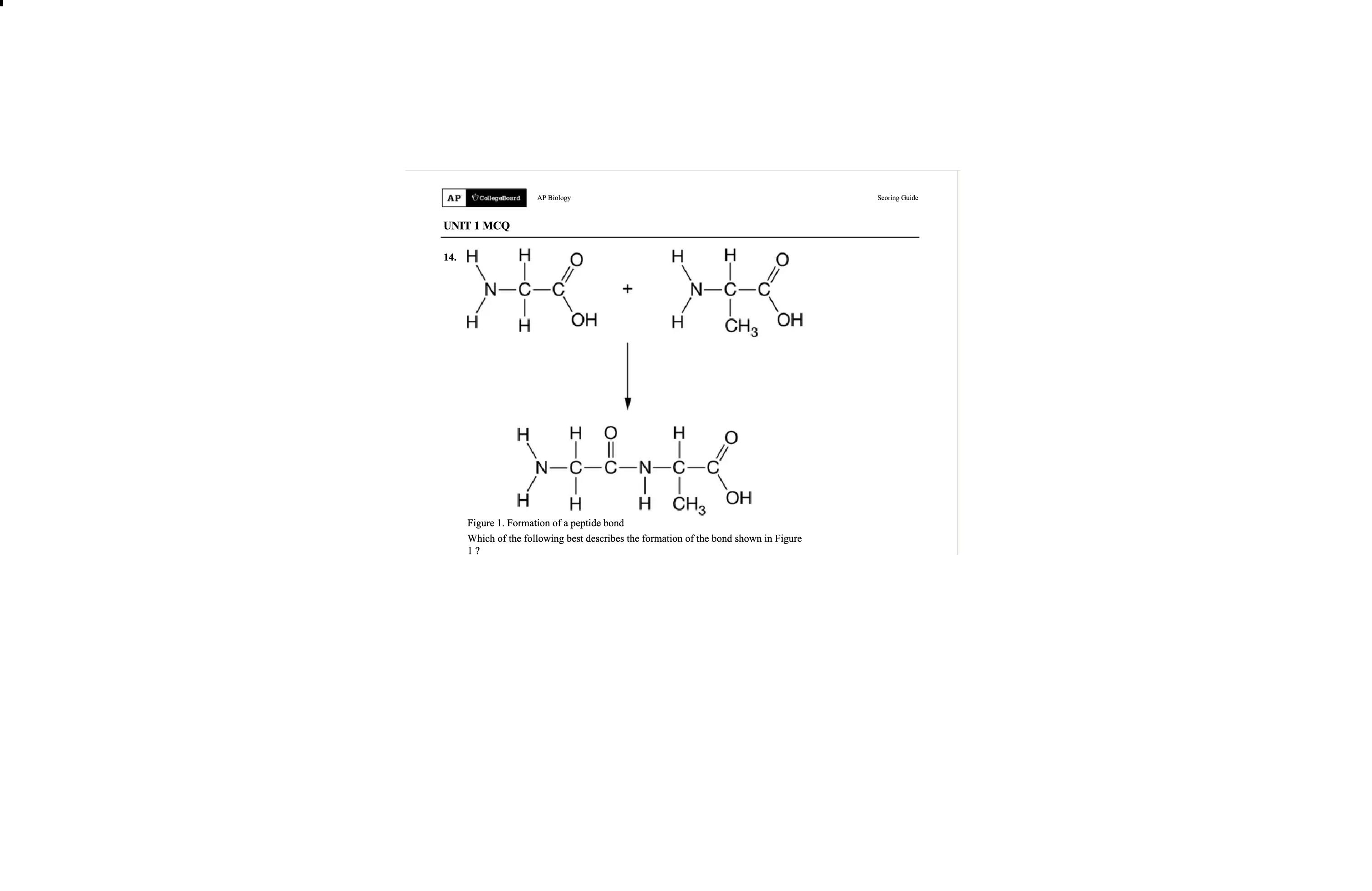
Which of the following shows the formation of the bond in figure 1
C


Which of the following best describes the structures of carbohydrates
B

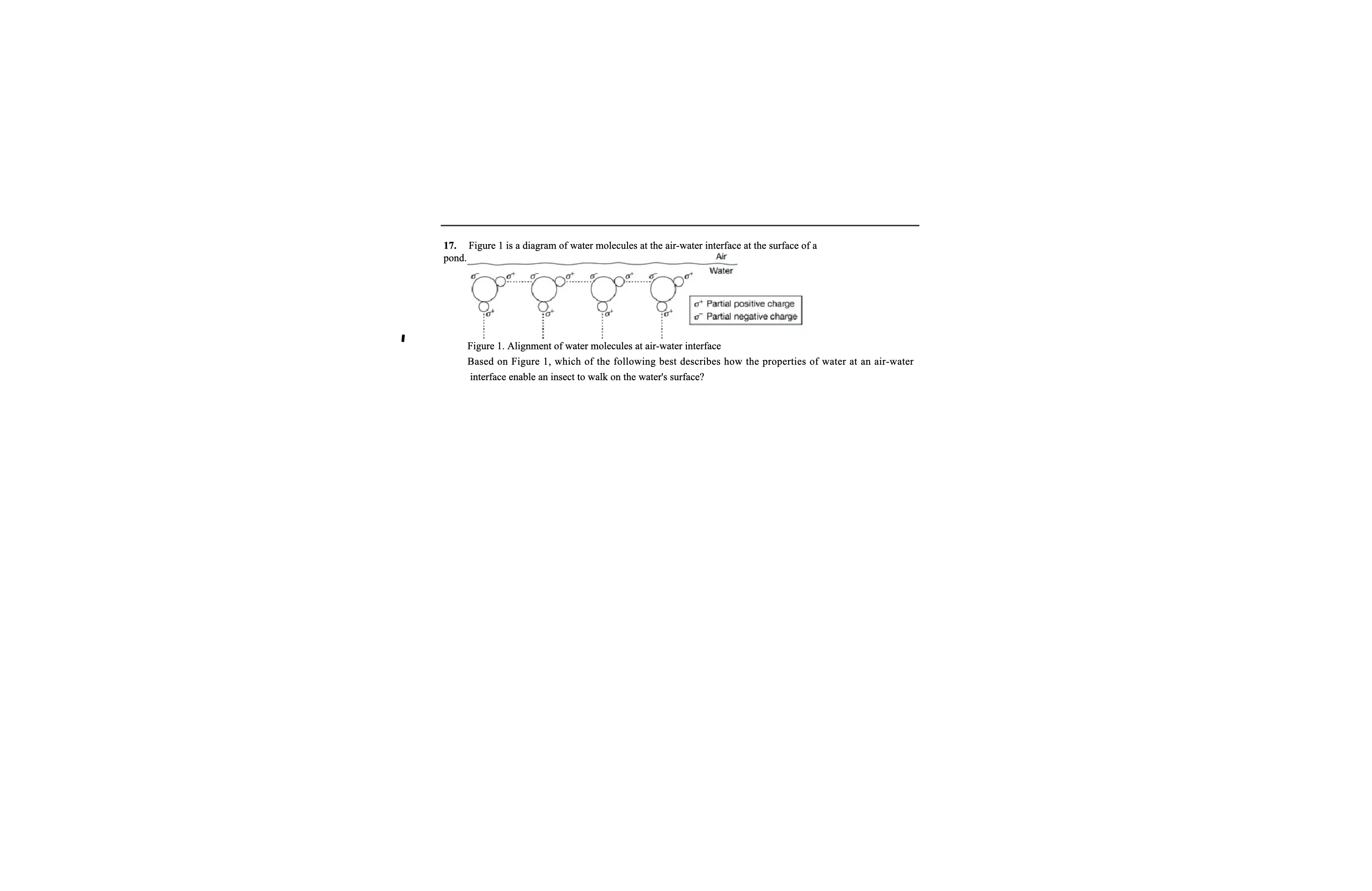
Which of the following best describes how the properties of water at an air-water interface enable an insect to walk on water’s surface
D
